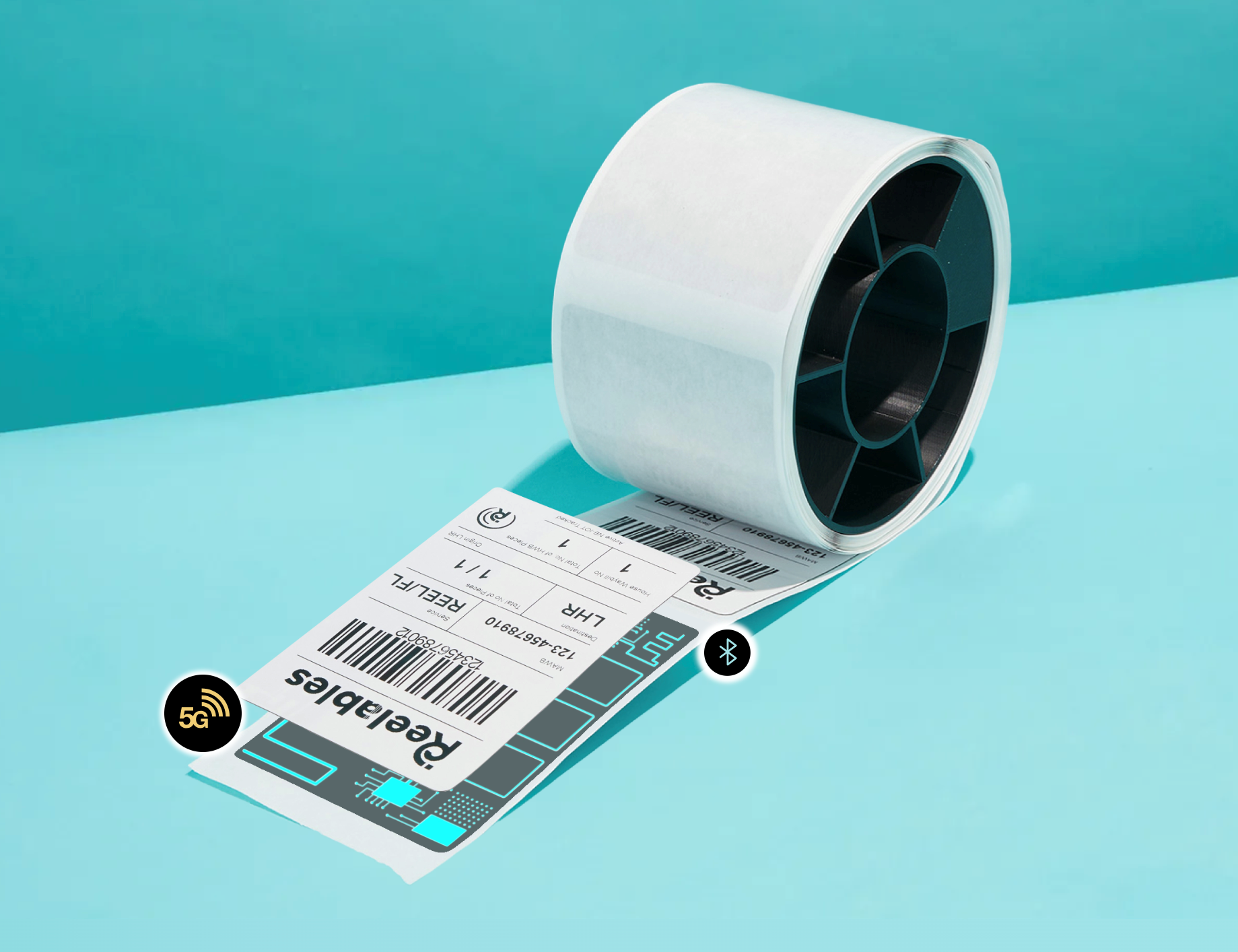 IOT
IOT
 IOT
IOT
 IOT
IOT
Reelables Inc., a company producing printable active smart labels for tracking cargo and inventory, today announced it has raised $10.4 million in early-stage funding.
Amigos Ventures, Moneta, Raptor Group, Silicon Labs and Smooth Brain participated in the Series A round.
Reelables is the first company to reach mass production of a new category of thin-film, flexible, active wireless smart labels. Its labels are fully disposable and allow printing using standard thermal barcode printers.
In an interview with SiliconANGLE, Reelables Chief Executive and co-founder David Stanton said the core technology behind the smart labels wasn’t something the team intentionally set out to build. Instead, the company “fell into this totally by accident,” after he and co-founder and Chief Technology Officer Brian Krejcarek were discussing a pain point in airline logistics.
Krejcarek had already been experimenting for years with ultra-low-cost disposable circuits, which became foundational technology for the smart labels the company now manufactures.
“There’s been basically no innovation in supply chains for 20 years,” Stanton said. “Our goal is that whenever anyone builds a supply chain, the default is that it’s a smart supply chain. You’d never consider not putting one of these labels on a tote, on a pallet, on a piece of cargo.”
Reelables developed a novel manufacturing method that combines the low-cost printing approaches for radio frequency identification tabs, or RFID, with far more complex radio circuitry. The addition of “direct print battery” technology integrates the circuit directly into the battery substrate itself, allowing labels to remain paper-thin.
“We’re able to make a label that is extremely low cost, but has the capabilities of a battery-powered device,” Stanton explained.
Supply chain operators today don’t have reliable real-time visibility. Disruptions are discovered reactively, such as once a shipment fails to arrive. In practice, staff often must review camera footage or physically search a warehouse and ground handler facilities to locate missing items.
With Reelables’ smart labels, warehouse tracking can reach sub-meter accuracy and connect to a tracking data provisioning system that automatically updates even when cargo is misplaced or moved. Operators can precisely view which pallet, shelf or truck a particular parcel is in and shipments can be validated at the dock door, flagging missing items instantly.
Reelables’ current tracking labels come in two primary varieties: one that uses Bluetooth and one that uses 5G cellular.
“Bluetooth labels are about a 10th the price of our cellular label,” Stanton said. “The key difference is how much control you have over your infrastructure and your supply chain.”
Bluetooth labels are ideal for owned facilities, factories and warehouses where operators install infrastructure. They can be tracked using Bluetooth readers that can be placed around the facility. They are low-cost, used at very high volumes and ideal for internal inventory flow.
Cellular 5G labels are designed for complex, multihop global logistics, such as when cargo moves through carriers such as DHL, FedEx or international ground handlers. These are places where a shipper cannot install scanners. The labels report location directly to cellular towers and require no infrastructure.
Industries that use cellular labels include tech companies tracking server and data center equipment, fashion companies and smartphone makers tracking shipments and ensuring boxes remain together. The labels check in every two minutes, allowing companies to verify shipment integrity and location constantly.
Most value comes from tracking location, but Reelables also produces labels that can track temperature for perishables and cold-chain monitoring. The company is also planning to add a light sensor to detect when packages are opened or exposed unexpectedly — for example, when a box is opened outside a warehouse or removed from a truck improperly.
The philosophy is to keep the sensors minimal and ultra-low-cost so that they can be applied ubiquitously. Ordinarily, these wireless smart labels are attached to high-value cargo.
Stanton isn’t concerned about the competition growing in the space. For example, Avery Dennison Corp. and Zebra Technologies Corp. use RFID tracking labels for parcels and cargo. Supply chain visibility company, Tag-N-Trac Inc., also produces a disposable smart label.
Competition is good, he contended, because he believes it is inevitable that every piece of cargo globally will eventually have a smart label. Reelables’ strategy is to be the one that comes out on top with scale, manufacturability and ubiquity.
“The next step really is cargo starts talking,” Stanton said. “The inventory itself has a voice to say, ‘I’m here. This is my condition.’”
The company has seen a 200% increase in both revenue and the number of labels produced this year, although Stanton did not reveal any numbers. He mentioned that the company now has companies using millions of labels a year and that Reelables plans to scale up to 100 million labels per year with the funding.
“This round of funding is really scale-up funding,” Stanton said. “We’ve added two new manufacturing lines that should be ready beginning of Q1 next year.”
Support our mission to keep content open and free by engaging with theCUBE community. Join theCUBE’s Alumni Trust Network, where technology leaders connect, share intelligence and create opportunities.
Founded by tech visionaries John Furrier and Dave Vellante, SiliconANGLE Media has built a dynamic ecosystem of industry-leading digital media brands that reach 15+ million elite tech professionals. Our new proprietary theCUBE AI Video Cloud is breaking ground in audience interaction, leveraging theCUBEai.com neural network to help technology companies make data-driven decisions and stay at the forefront of industry conversations.